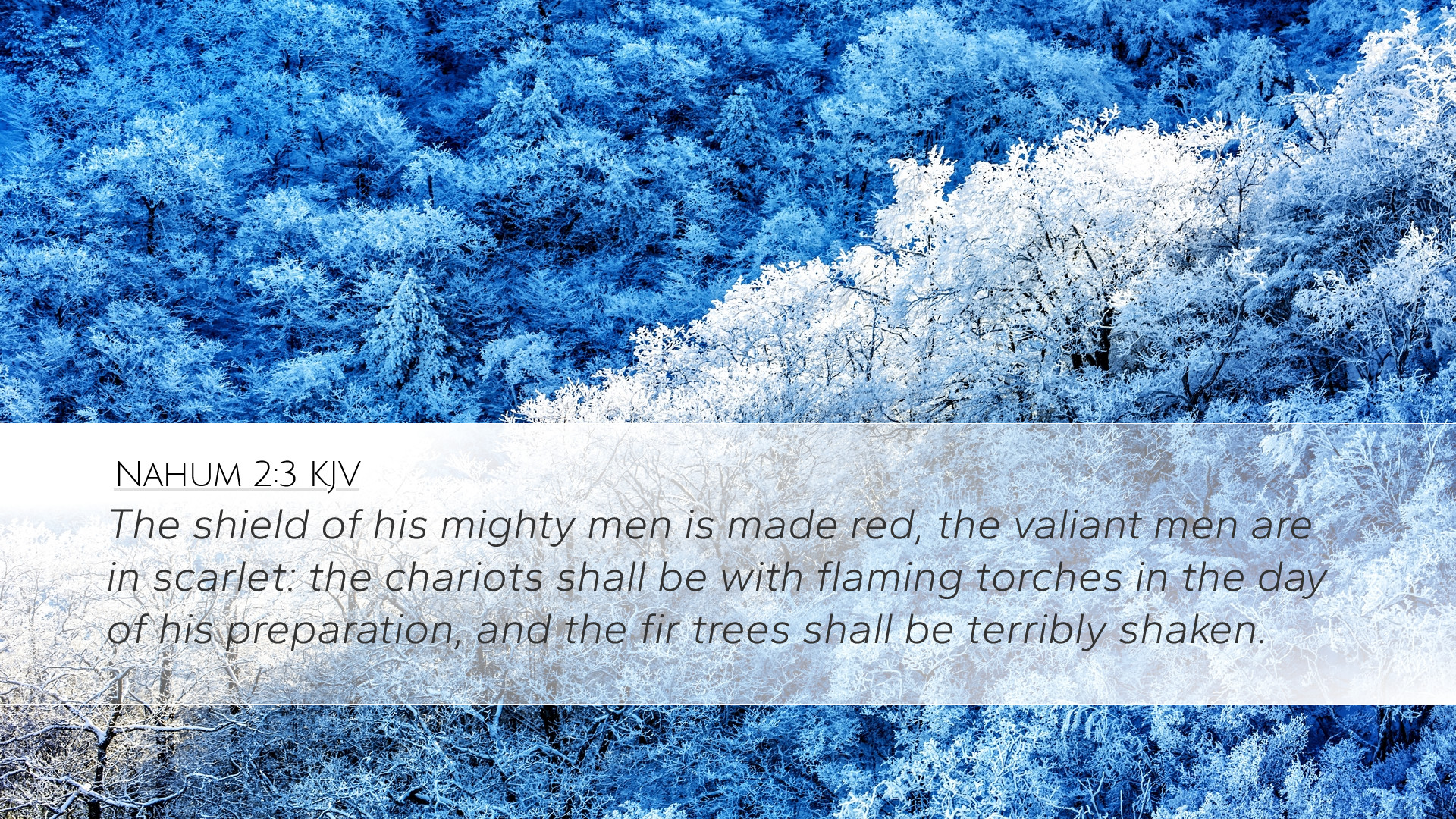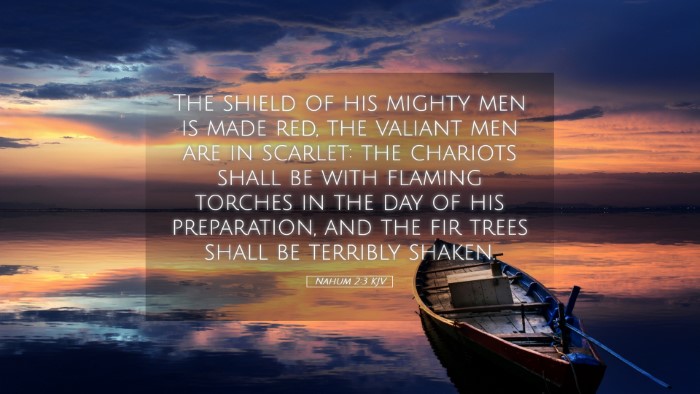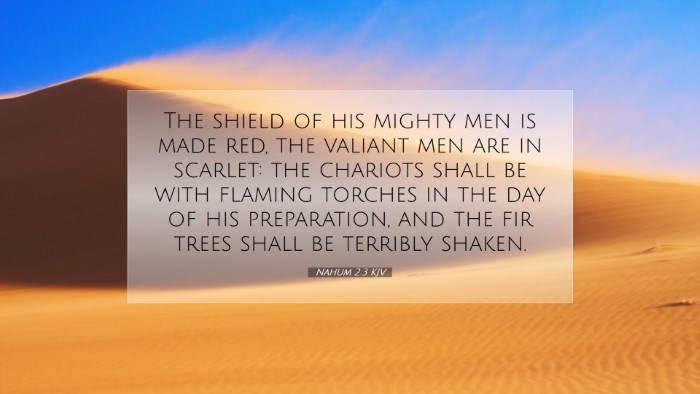Old Testament
Genesis Exodus Leviticus Numbers Deuteronomy Joshua Judges Ruth 1 Samuel 2 Samuel 1 Kings 2 Kings 1 Chronicles 2 Chronicles Ezra Nehemiah Esther Job Psalms Proverbs Ecclesiastes Song of Solomon Isaiah Jeremiah Lamentations Ezekiel Daniel Hosea Joel Amos Obadiah Jonah Micah Nahum Habakkuk Zephaniah Haggai Zechariah MalachiNahum 2:3
Nahum 2:3 KJV
The shield of his mighty men is made red, the valiant men are in scarlet: the chariots shall be with flaming torches in the day of his preparation, and the fir trees shall be terribly shaken.
Nahum 2:3 Bible Commentary
Commentary on Nahum 2:3
Introduction
Nahum's prophecies are a vivid testament to God's judgment on Nineveh, the capital of Assyria, reflecting themes of divine justice and retribution. The specific verse, Nahum 2:3, encapsulates the military might and destruction that would befall this once-great empire. This analysis synthesizes insights from prominent public domain commentaries to provide a comprehensive understanding of this verse.
Text of Nahum 2:3
"The shield of his mighty men is made red, the valiant men are in scarlet: the chariots shall be with flaming torches in the day of his preparation, and the fir trees shall be terribly shaken."
Historical Context
To grasp the full effect of Nahum's pronouncement, one must consider the historical backdrop of Assyria. This empire was known for its brutal conquests, including the destruction of Israel and the oppression of its neighboring nations. God's declaration of impending doom serves as both a message of hope to the oppressed and a stark warning to the oppressors.
Commentary Insights
-
Matthew Henry's Commentary
Matthew Henry emphasizes the powerful imagery presented in this verse, particularly the description of the Assyrian soldiers. The shield of the mighty men being "made red" symbolizes the bloodshed and violence associated with their conquests. Henry elucidates how the boldness of these warriors, clothed in scarlet, signifies both their pride and the impending divine judgment that will soon turn them into targets of similar violence.
-
Albert Barnes' Notes
Albert Barnes interprets the "chariots with flaming torches" as a metaphor for the overwhelming force and ferocity with which judgment would come upon Nineveh. He notes that the day of preparation refers to the day of destruction when God's plan will be executed. Barnes also indicates that the "fir trees being terribly shaken" alludes to the upheaval and terror that follows divine retribution, signifying how creation itself trembles at the might of the Lord's judgment.
-
Adam Clarke's Commentary
Adam Clarke elaborates on the significance of the colors mentioned—red and scarlet—suggesting that this resonates with the ideas of bravery and bloodshed. He draws a parallel between this imagery and the notion of divine vengeance, underscoring how the preparations for war lead to ultimate destruction. Clarke also highlights the deep spiritual truth that the terrors of war and judgment serve to remind believers of God's sovereignty over nations and history.
Theological Implications
The rich imagery contained in Nahum 2:3 prompts deep theological reflection on the nature of God as both a protector of His people and a God of justice. This duality serves as a reminder that while God is merciful and gracious, He is also ever-watchful over evil and will enact judgment upon it. This verse teaches that divine retribution is a critical aspect of God's character, assuring believers that evil will not go unpunished.
Application for Today
For pastors, students, and scholars alike, Nahum 2:3 encourages a posture of vigilance in recognizing the reality of God's justice in a troubled world. It serves as a warning against the pride and cruelty often witnessed in power dynamics, inviting a response of humility and repentance. The imagery challenges believers to contemplate the long-term consequences of evil behaviour and to trust in God's timing for justice.
Conclusion
Nahum 2:3 stands as a powerful reminder of God's sovereignty and justice, highlighted through vivid and striking imagery. With insights drawn from esteemed commentaries, this verse invites deep reflection and offers profound theological implications for our understanding of God's nature and His unwavering commitment to justice. As believers engage with this text, they are encouraged to uphold the values of truth, justice, and compassion modeled by God Himself.


